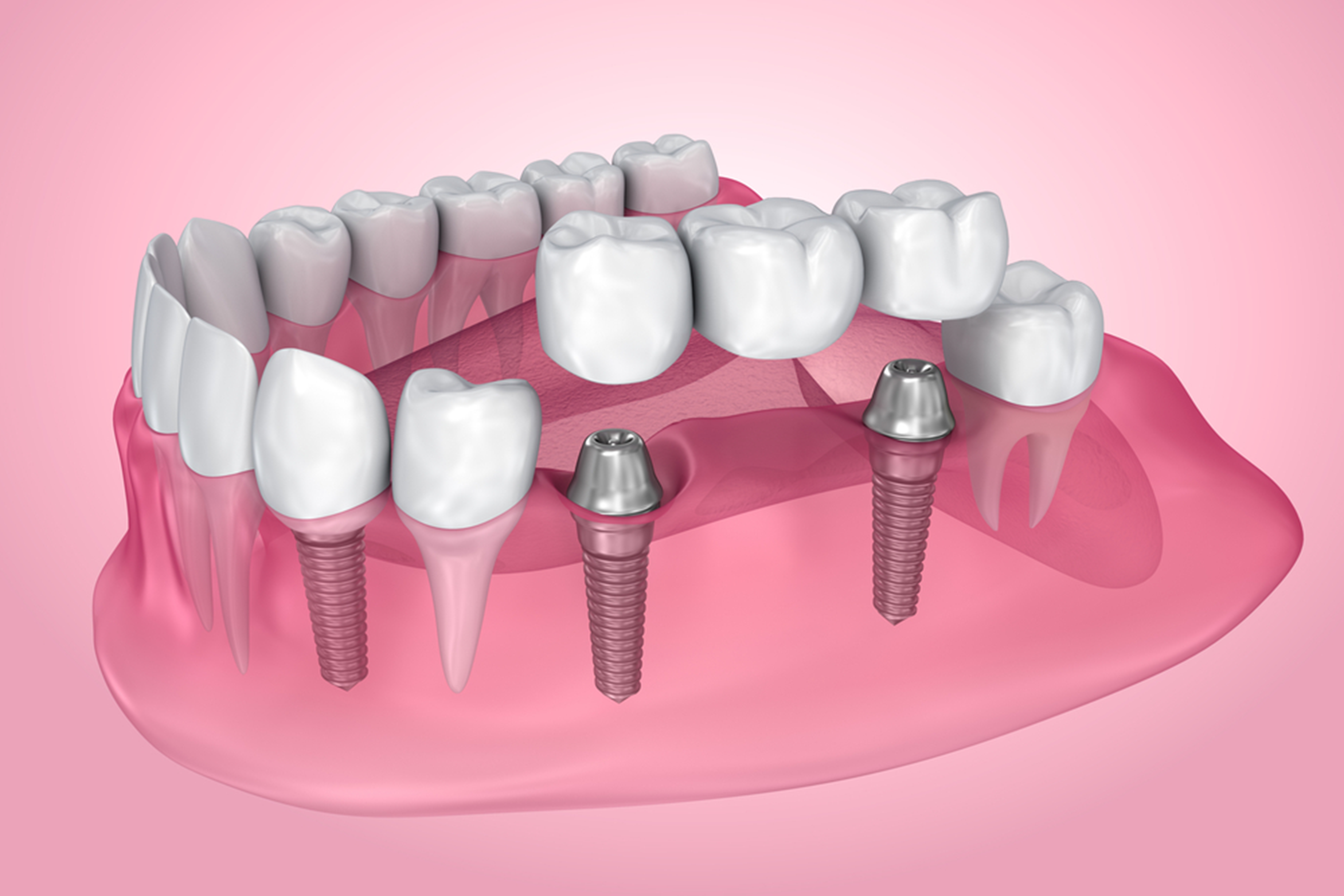Dental bridges are an excellent restorative dentistry treatment for many patients but are not the only available option. It can be difficult to determine if dental bridges in Saskatoon are the right choice for your needs, so our team at Brighton Dental Centre has put together this article outlining the advantages and disadvantages of dental bridges.
What is a Dental Bridge?
A dental bridge is usually made up of two crowns placed on the two teeth adjacent to the gap created by the missing tooth, in addition to an artificial tooth, called a pontic, that joins the two crowns and fills the gap. Dental bridges can be made of many materials, but most are made from gold, silver, porcelain, and porcelain-fused-to-metal.
Advantages of Dental Bridges
Several benefits come with dental bridges. Firstly, dental bridges effectively replace missing teeth, offering both aesthetically pleasing and functional restorations. Furthermore, dental bridges allow patients to eat and speak normally as there is no longer a gap in the jaw.
Dental bridges can also offer benefits for the long-term structure of your mouth. Without a replacement for a missing tooth, the gap can lead to the misalignment of teeth and jawbone deterioration. However, when a dental bridge replaces the missing tooth or teeth, the teeth on each side are held in place, reducing the risk of consequential bite problems. Additionally, dental bridges can prevent the shrinkage of the jaw due to bone deterioration, maintaining the shape of your face and preventing a sunken-in look and premature ageing.
Many patients also choose dental bridges because they fit comfortably in the mouth and are easily maintained. It usually takes a short amount of time for patients to get used to the feel of a dental bridge, which will become barely noticeable since it blends in with the smile perfectly. Our dentist in Saskatoon will often recommend a dental bridge over other restorations such as dentures because they do not need to be removed for cleaning and can be easily cleaned the same way that natural teeth can, thorough brushing.
Disadvantages of Dental Bridges
Although they have many benefits, dental bridges come with their drawbacks like any other dental restoration.
Dental bridges require that the healthy teeth on either side of the gap created by the missing tooth or teeth become permanently altered to fit the bridge. If the bridge is not properly fitted, there is a risk of decay and further damage to those teeth.
For some individuals, the supporting teeth are not strong enough to hold the dental bridge and end up collapsing, leading to further oral health problems down the line.
Weigh the Pros and Cons with Brighton Dental
The best type of restorative dental treatment will depend on your specific case, and it is always important to understand the benefits and drawbacks of any dental procedure. Our dentists can work with you to help you determine the best restoration for your specific needs and desires. If you have further questions about the process for getting dental bridges, please contact our team of dedicated dental professionals at Brighton Dental. We are happy to help you achieve the smile of your dreams and provide you with a plethora of options until we find a solution that satisfies all your dental needs. Please contact our team to book a consultation today!

